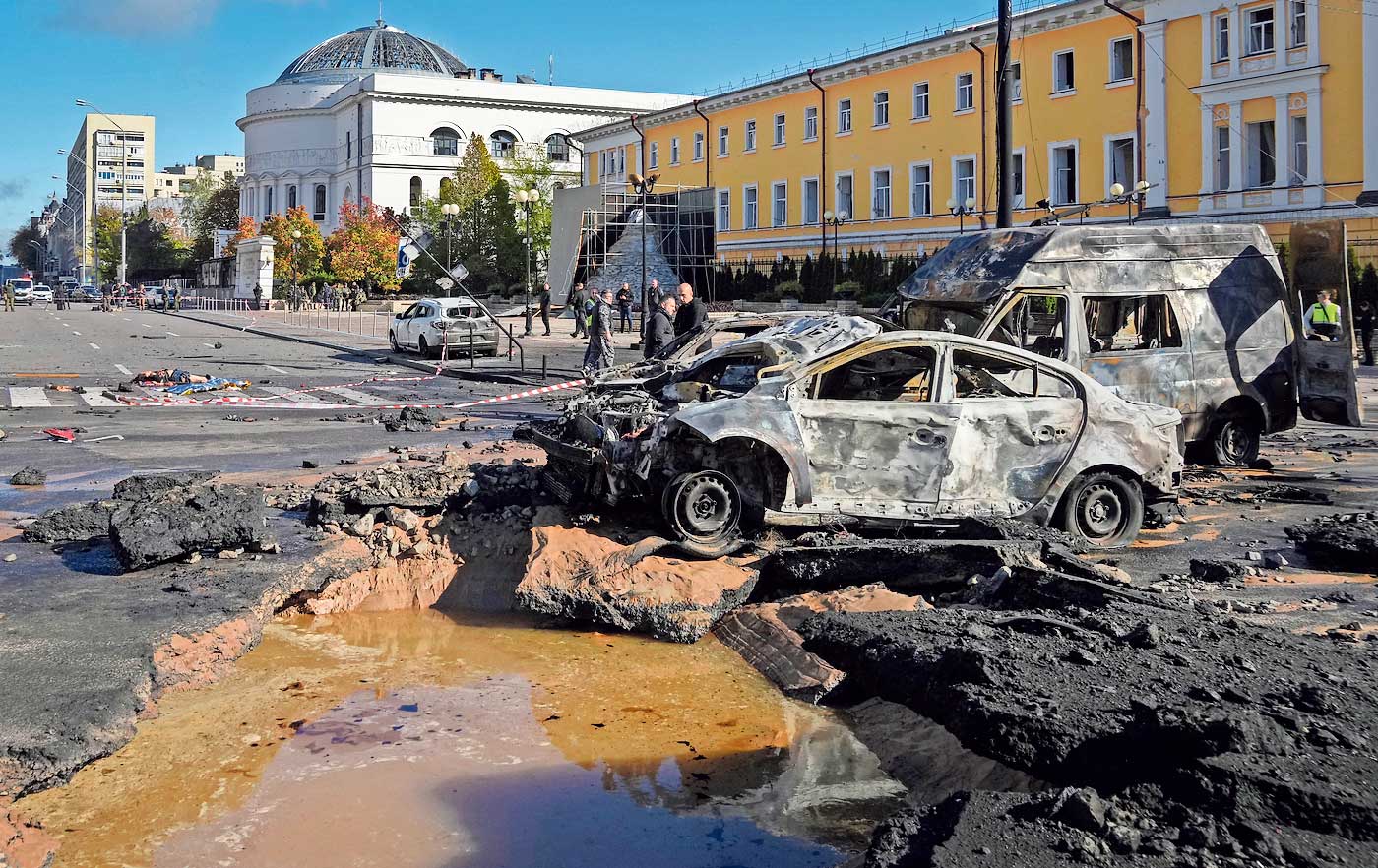The Russian government retaliated on Monday for a weekend Ukrainian attack on a key bridge, launching its biggest offensive against Ukraine in months, a deadly barrage against several cities that destroyed civilian targets, left the population without electricity. or drinking water, destroyed buildings and killed at least 14 people.
Ukraine’s Emergency Service reported that around 100 people were injured in the morning rush hour attacks Russia launched from air, sea and land against at least 14 regions, from Lviv in the west to Kharkiv in the east. Many of the attacks occurred far from the front lines.
While Russia claimed the missiles targeted military and energy installations, some hit civilian areas as people headed to work or school. One hit a playground in the center of kyiv and another hit a university.
The attacks caused blackouts across much of the country, depriving hundreds of thousands of people of electricity until Monday night and creating shortages so severe that Ukrainian authorities have announced they will halt power exports to Europe from Tuesday. Power outages also often deprive residents of water, since electricity is required to run pumps and other equipment.
Andriy Yermak, a top adviser to Ukrainian President Volodymyr Zelenskyy, said the strikes had no “practical military sense” and that Russia’s goal was to cause a “humanitarian catastrophe.”
For his part, Russian President Vladimir Putin said his forces used “precision weapons” to attack key energy infrastructure and military command facilities in retaliation for what he called “terrorist” actions by kyiv, a reference to Ukraine’s actions to repel the Russian invasion, including an attack Saturday on a bridge between Russia and the Crimean peninsula, which Putin says was planned by the Ukrainian special services.
Putin promised a “tough” and “proportionate” response should Ukraine carry out more attacks that threaten Russia’s security. “Nobody should have any doubts about it,” he stressed in a video message to the Russian Security Council.
The Russian leader has been under intense domestic pressure to take more aggressive steps to stop a Ukrainian counteroffensive and to mount a strong response to Saturday’s attack on the Kerch Bridge, the construction of which he used to cement his 2014 annexation of Crimea.
Putin’s increasingly frequent descriptions of Ukraine’s actions as terrorists could presage even more drastic actions. But in his speech on Monday, Putin did not change his “special military operation” to a counter-terrorist operation or martial law. Zelenskyy has repeatedly called on leaders of other countries to declare Russia a terrorist state due to its attacks on civilians and alleged war crimes.
Moscow’s war in Ukraine is nearing eight months and the Kremlin has tried to recover from humiliating battlefield setbacks in areas of eastern Ukraine it seeks to annex.
Ukraine’s law enforcement chief said Monday’s attacks damaged 70 infrastructure sites, of which 29 are crucial. Zelenskyy stressed that of the 84 cruise missiles and 24 drones Russia fired, Ukrainian forces shot down 56.
There were explosions in the capital’s Shevchenko district, which includes government offices, kyiv Mayor Vitali Klitschko said.
Some of the missiles landed near the government district in the symbolic heart of the capital, where Parliament and other important landmarks are located. An office tower was significantly damaged, with most of its windows blown out.
In a video message, Zelenskyy noted that the attacks occurred during Monday’s rush hour, saying that Russia “picked that time and those targets on purpose to inflict the most damage.”
• Civilian targets destroyed
• Ukrainian population without electricity or drinking water
• Destroyed buildings

